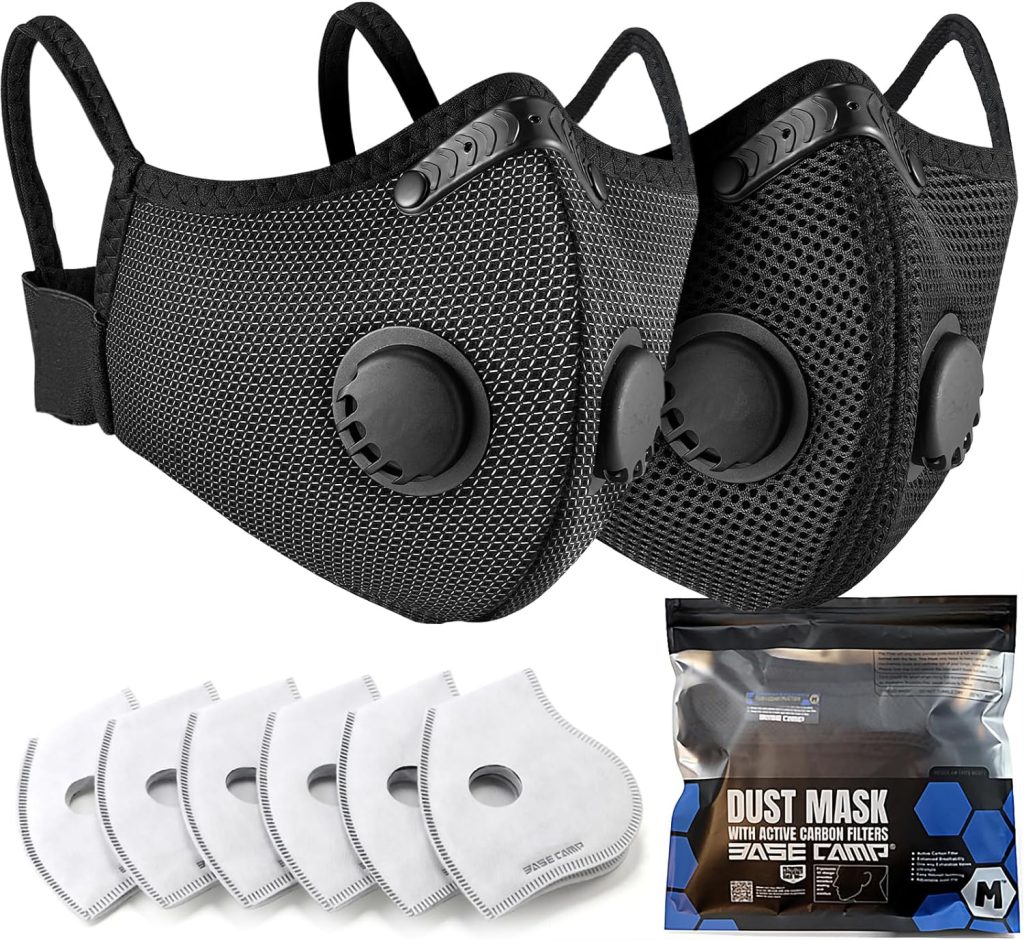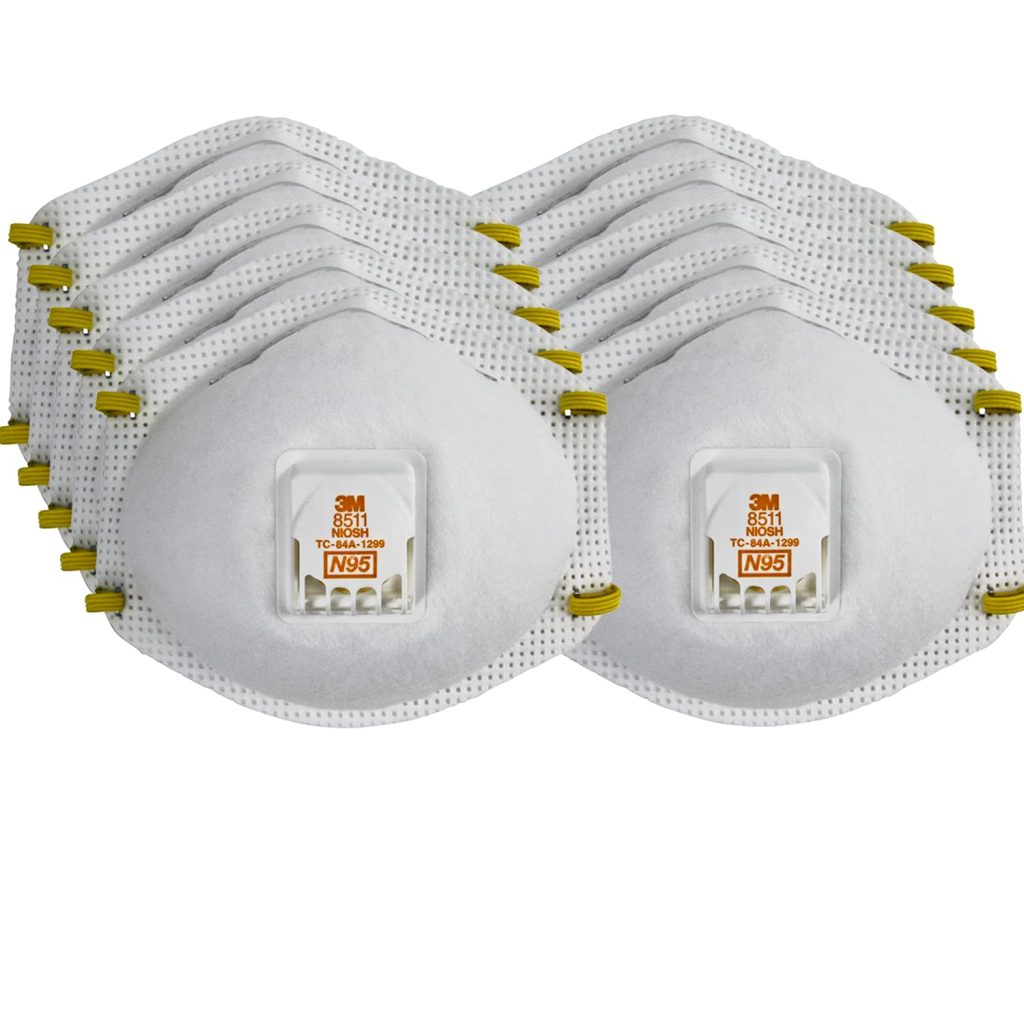Dust Mask
*As an Amazon Associate, I earn from qualifying purchases. Please see our disclosure to learn more.
A dust mask, also known as a particulate respirator, is a device designed to protect the wearer from inhaling airborne particles and dust. They are commonly used in agriculture where exposure to dust, pollutants, allergens, or other airborne particles that may pose a risk to respiratory health.
Benefits of Using Dust Masks
Using a dust mask in gardening can offer several benefits, particularly for the health and comfort of the gardener:
- Protection from Allergens: Dust masks can help protect gardeners from inhaling allergens such as pollen, mold spores, and dust particles. These particles can trigger allergies and respiratory issues.
- Prevention of Respiratory Issues: Long-term exposure to soil dust and compost particles can lead to respiratory problems. A dust mask helps in reducing the inhalation of these particles to help lower the risk of respiratory issues like bronchitis or asthma.
- Reduction of Irritants: Dust masks can help minimize exposure to irritants present in the garden, including pesticides, fertilizers, and chemicals. These substances can cause irritation to the respiratory system and skin, and wearing a mask provides a layer of protection.
- Safety from Harmful Substances: In some gardening tasks, such as handling certain types of soil, compost, or chemicals, there may be exposure to harmful substances or pathogens. A dust mask can help prevent these substances from entering the respiratory system.
- Comfort and Convenience: Wearing a dust mask can also make gardening more comfortable, especially during dry and dusty conditions.
Buying A Dust Mask
Here are some considerations and recommendations for choosing the right dust mask for gardening:
- Particle Filtration: Look for masks with efficient particle filtration capabilities. Masks with N95, N99, or N100 ratings are highly recommended as they can filter out over 90% of airborne particles.
- Comfort and Fit: Ensure that the mask fits snugly over your nose and mouth without gaps. Adjustable straps or nose clips can help achieve a secure fit. Comfort features such as soft inner linings and lightweight materials are great for long gardening sessions.
- Breathability: Opt for masks with good breathability to prevent discomfort during exertion. Masks with exhalation valves can facilitate easier exhalation and reduce heat buildup inside the mask.
- Reusable vs. Disposable: Consider whether you prefer reusable masks that you can be wash and reuse multiple times or disposable masks for convenience.
- Allergen Protection: If you have allergies, especially to pollen or certain plants, choose a mask specifically designed to filter out allergens.


